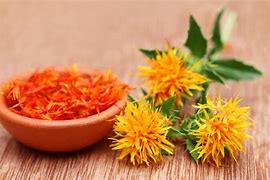Description
Some research shows St. John’s wort can help treat depression and other medical conditions, but experts warn there are some downsides to this herbal supplement. St. John’s wort is natural. It’s an herbal supplement that doesn’t require a prescription and you can buy it at a health food store.
Sounds good, but that doesn’t necessarily make it harmless, according to a study published in 2015 in the journal Clinical and Experimental Pharmacology and Physiology. Researchers at the University of Adelaide compared adverse events of St. John’s wort and the antidepressant drug fluoxetine (Prozac). The team used information from doctors’ reports to Australia’s national agency on drug safety.
Between 2000 and 2013, there were 84 adverse reaction reports for St. John’s wort. There were 447 reports for Prozac. Since reporting adverse events is voluntary, researchers said it’s likely that adverse events are underreported.Side effects of the two substances are similar.
They include vomiting, dizziness, anxiety, panic attacks, aggression, and amnesia. There are also serious concerns about drug interactions.
The benefits of St. John’s wort
St. John’s wort (Hypericum perforatum) is a flowering plant.
St. John’s Wort: The Benefits and the Dangers
Some research shows St. John’s wort can help treat depression and other medical conditions, but experts warn there are some downsides to this herbal supplement.
St. John’s wort is natural. It’s an herbal supplement that doesn’t require a prescription and you can buy it at a health food store. Sounds good, but that doesn’t necessarily make it harmless, according to a study published in 2015 in the journal Clinical and Experimental Pharmacology and Physiology.
Researchers at the University of Adelaide compared adverse events of St. John’s wort and the antidepressant drug fluoxetine (Prozac). The team used information from doctors’ reports to Australia’s national agency on drug safety. Between 2000 and 2013, there were 84 adverse reaction reports for St. John’s wort. There were 447 reports for Prozac.
Since reporting adverse events is voluntary, researchers said it’s likely that adverse events are underreported. Side effects of the two substances are similar. They include vomiting, dizziness, anxiety, panic attacks, aggression, and amnesia. There are also serious concerns about drug interactions.
How much St. John’s wort should you take?
Blair Green Thielemier, PharmD, told Healthline in 2015 that dosing varies due to non-standardized manufacturing.
A normal dose range would be anywhere from 300 to 1200 mg a day. It’s usually taken in divided doses (300 mg three times daily or 600 mg twice daily).
The effects of St. John’s wort on the body are not fully understood.
A number of the supplement’s active ingredients, including hypericin, hyperforin, and adhyperforin, may be responsible for its medicinal benefits.
St. John’s Wort:
The Benefits and the Dangers
Some research shows St. John’s wort can help treat depression and other medical conditions, but experts warn there are some downsides to this herbal supplement. Sounds good, but that doesn’t necessarily make it harmless, according to a study published in 2015 in the journal Clinical and Experimental Pharmacology and Physiology.
Researchers at the University of Adelaide compared adverse events of St. John’s wort and the antidepressant drug fluoxetine (Prozac). The team used information from doctors’ reports to Australia’s national agency on drug safety. Between 2000 and 2013, there were 84 adverse reaction reports for St. St. John’s wort. There were 447 reports for Prozac. Since reporting adverse events is voluntary, researchers said it’s likely that adverse events are underreported.
Side effects of the two substances are similar.
The downside of St. John’s wort
FDA regulations for dietary supplements are not the same as those for drug products.
Unless there’s a new dietary ingredient, a firm doesn’t have to provide FDA officials with the evidence it relies on to substantiate safety or effectiveness before or after it markets its products. “Natural” doesn’t mean it can’t cause harm, said Thielemier.
The main concerns about the herb center on the metabolic pathway known as cytochrome 450.
She explained that this pathway consists of the enzymes our body uses to clear drugs and ingested chemicals from the bloodstream. “These enzymes are responsible for breaking down everything from the glass of wine you may have with dinner to a daily vitamin you take to keep your bones strong,” said Thielemier.
Other substances can influence these enzymes.
“If you have ever heard that grapefruit juice can interfere with your medications, then you know of this process we call enzyme induction,” said Thielemier. “St. John’s wort, like grapefruit juice, induces the body to produce more of these enzymes in order to clear the chemical from the bloodstream [faster].” That can rob other medications of their power. Wolf suggests the herb may work similarly to fluoxetine. If it inhibits the reuptake of serotonin, it would explain the similar side effects.
















Reviews
There are no reviews yet.